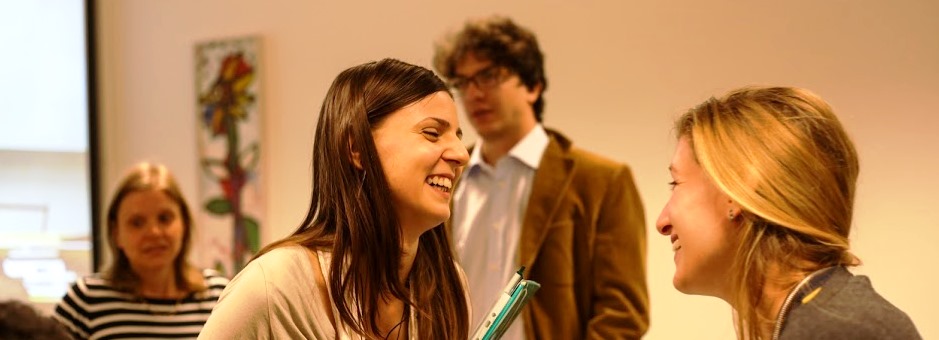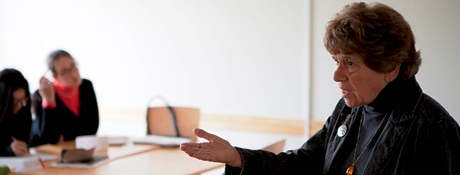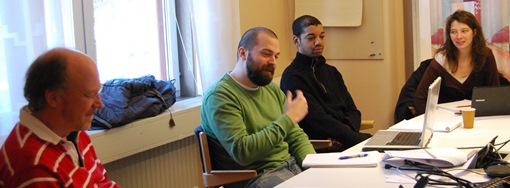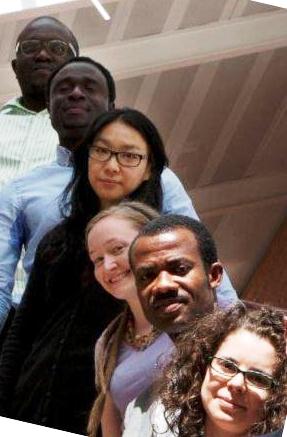Students are free to choose any two of the optional courses. The number of optional courses given at any semester will vary. All courses deal mainly with Africa south of the Sahara.
- African Studies: Literature and Politics in Contemporary Africa, 7 ECTS (AS3009)
The course covers key issues pertaining to politics – understood as the assumptions or principles concerning power and status in society – in contemporary Africa through the lens of literature written in English, Portuguese, French and Arabic, and translated into English. Students will study a selection of literary works written in or translated into English from the viewpoint of the ethical, cultural and political concerns that have motivated African authors. They will also analyse the ideological underpinnings of these works and evaluate their relevance in understanding modern African society. Themes that will be explored include the formation of national, cultural and gendered identities; perceptions of Africa in the West and of the West in Africa; the implications of writing in non-native African languages; the global literary market; and the conditions affecting the production and consumption of African literature. - African Studies: Economic Development in Africa: An Introduction, 7 ECTS (AS3011)
This course serves as an introduction to the study of current social and economic conditions in Africa in recent decades within a global context and from a historical perspective. Central issues in the course are different theories of development and the manner in which they have changed over time as well as different explanations of Africa’s development experience over past decades. Special attention is devoted to the economic success story of Botswana.
Photo: Marco Rosi - African Studies: International Health Focusing Nutrition in a Gender and an Economic Perspective, 7 ECTS (AS3006) This course focuses most generally on issues related to health and nutrition in Africa. Particular attention is paid to gender relations, economic developments and population changes and the manner in which these conditions impact on health and nutritional status. Major themes of the course are the cultural and political conditions under which food is produced and consumed and the manner in which this affects the health status of women, children and youth. Included as well is a focus on the social and cultural aspects of the HIV-AIDS pandemic.

"Get rid of the idea that culture is in the blood - It's in the head!" Judith Narrowe, Anthropology, teaches International Health
Photo: Hannes Forsell - African Studies: Human Rights in Sub-Saharan Africa, 7 ECTS (AS3007)
The course deals with theories of Human Rights and Democracy, with primary focus on their relevance for different Sub-Saharan societies. At the theoretical level, philosophical, legal and religious aspects of rights are examined. Possible conflicts and different kinds of rights are analysed, such as claims for cultural rights to self-determination and individual freedom. - African Studies: Islam and Islamic Societies in Africa, 7 ECTS (AS3008)
The course aims to introduce students to the importance of Islam in Africa and its influence upon African societies. A central issue of the course is African Islam and Islam in Africa: encounters between Sufis and Islamists, focusing on Somalia, Senegal, Nigeria and Sudan. Current institutional as well as legal situations will be analysed.
Optional Course: Islam and Islamic Societies in Africa: Seminar discussion with Associate Professor Torsten Hylén
Photo: Alessia Bergamini - Language and Nationhood in African Multilingual Countries, 7 ECTS
This course deals with issues such as language and nation; territoriality versus nationality; concepts of oneness/integration/unity in the context of bilingualism; politics of language education and human rights dimensions of language policies.
Åsa Wedin is Course Coordinator of Language and Nationhood in Africa.
Photo: Eva Grosso - African Studies: Urban Spaces and Urban Policies in AfricaSouth of the Sahara, 7 ECTS (AS3010)
This course introduces the student to the history of urbanisation and urban culture south of the Sahara. Central issues deal with the interaction between the market and social/public places in urban settings; the daily struggles and strategies of individuals and groups; the links between urban and rural landscapes; and the overall urban policies pursued by governments. The course furthermore deals with demographic features of African cities; relations between the city and society; the rural-urban interface; urbanisation and migration; and policies governing urban spaces.
Photo: Marco Rosi - West Africa since the 19th Century, 7 ECTS
This course module introduces the reader to the social history of West Africa in the context of the political changes and economic transformations that were introduced by the process of colonialism. Emphasis is on how these changes affected the patterns of urbanisation, population resettlements and displacements up to the post-colonial phenomenon of pauperisation of the continent.
Introduction to Hausa History, Culture and Language
Photo L. Berge
 Students come from many countries: from the top - Nigeria, Sierra Leone, South Korea, Finland, Ghana and Italy
Students come from many countries: from the top - Nigeria, Sierra Leone, South Korea, Finland, Ghana and Italy
Photo: Hannes Forsell
Last reviewed: